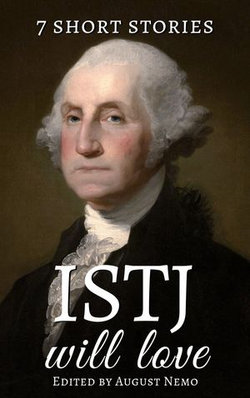ISTJs can be intimidating with their serious and formal appearance; they value the traditional way of doing things and work hard on everything they do. In this book you will find seven short stories specially selected to please the tastes of the ISTJ. These are stories by renowned authors that will surely bring reflections, insights and fun to people with this kind of personality. This book contains: - The Voyage by Katherine Mansfield. - A Society by Virginia Woolf. - Meditations: Book Two by Marcus Aurelius. - A Mystery of Heroism by Stephen Crane. - The Kiss by Guy de Maupassant. - A Simple Soul by Gustave Flaubert. - My Life by Anton Chekhov.For more books that will suit you, be sure to check out our Two Classic Novels your Myers-Briggs Type Will Love collection! *** Cover image: George Washington (1732 1799) was an American political leader, military general, statesman, Founding Father and ISTJ.



Share This eBook: